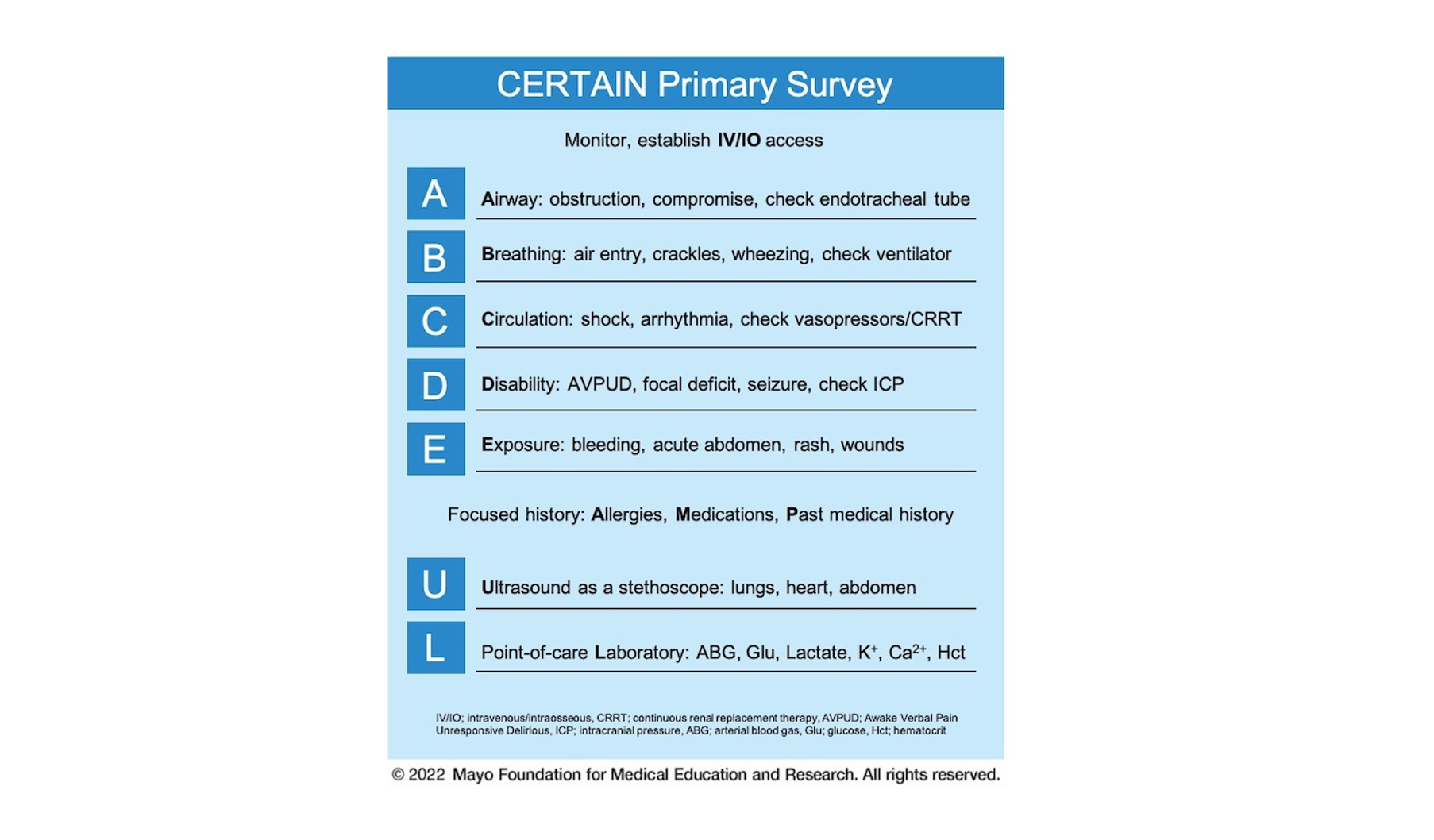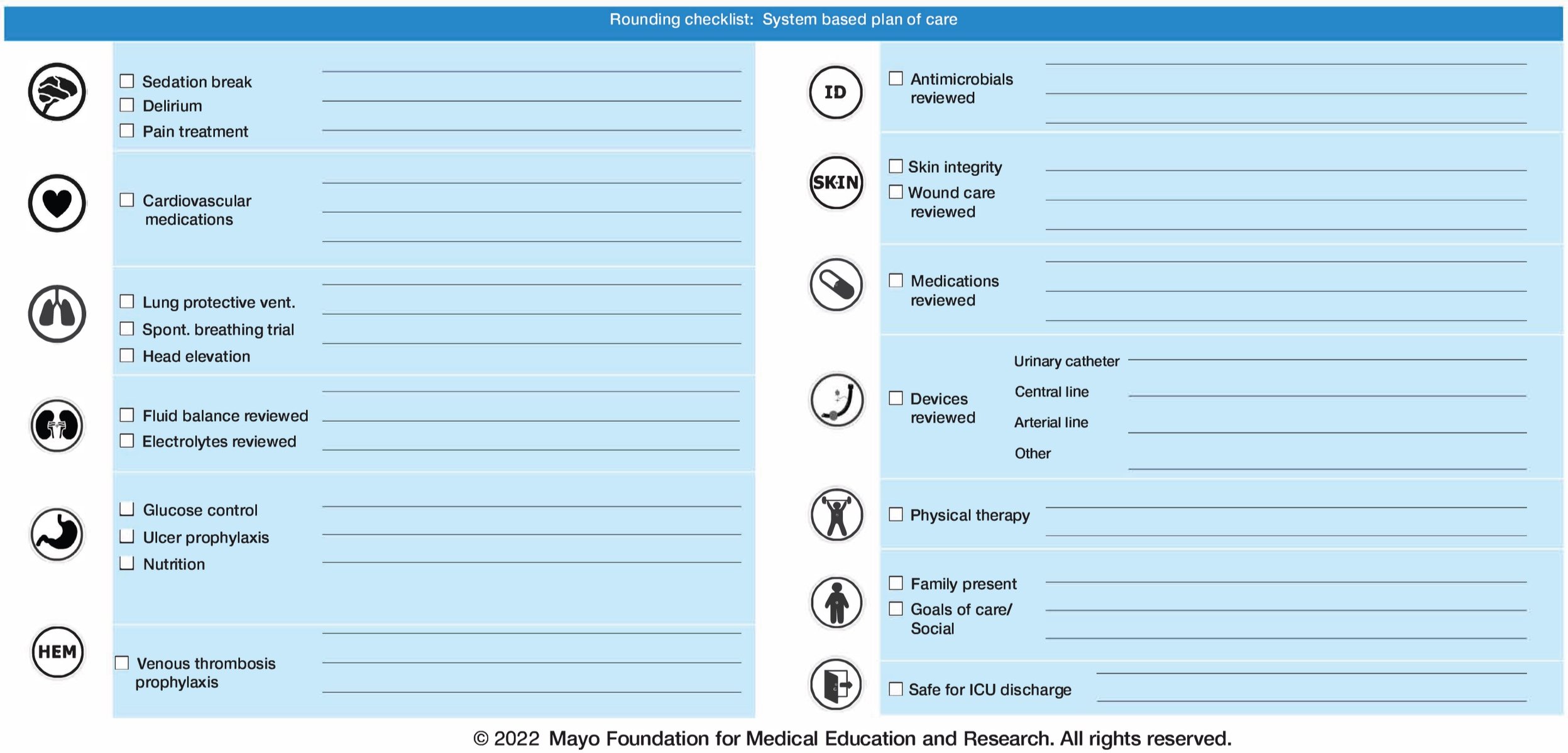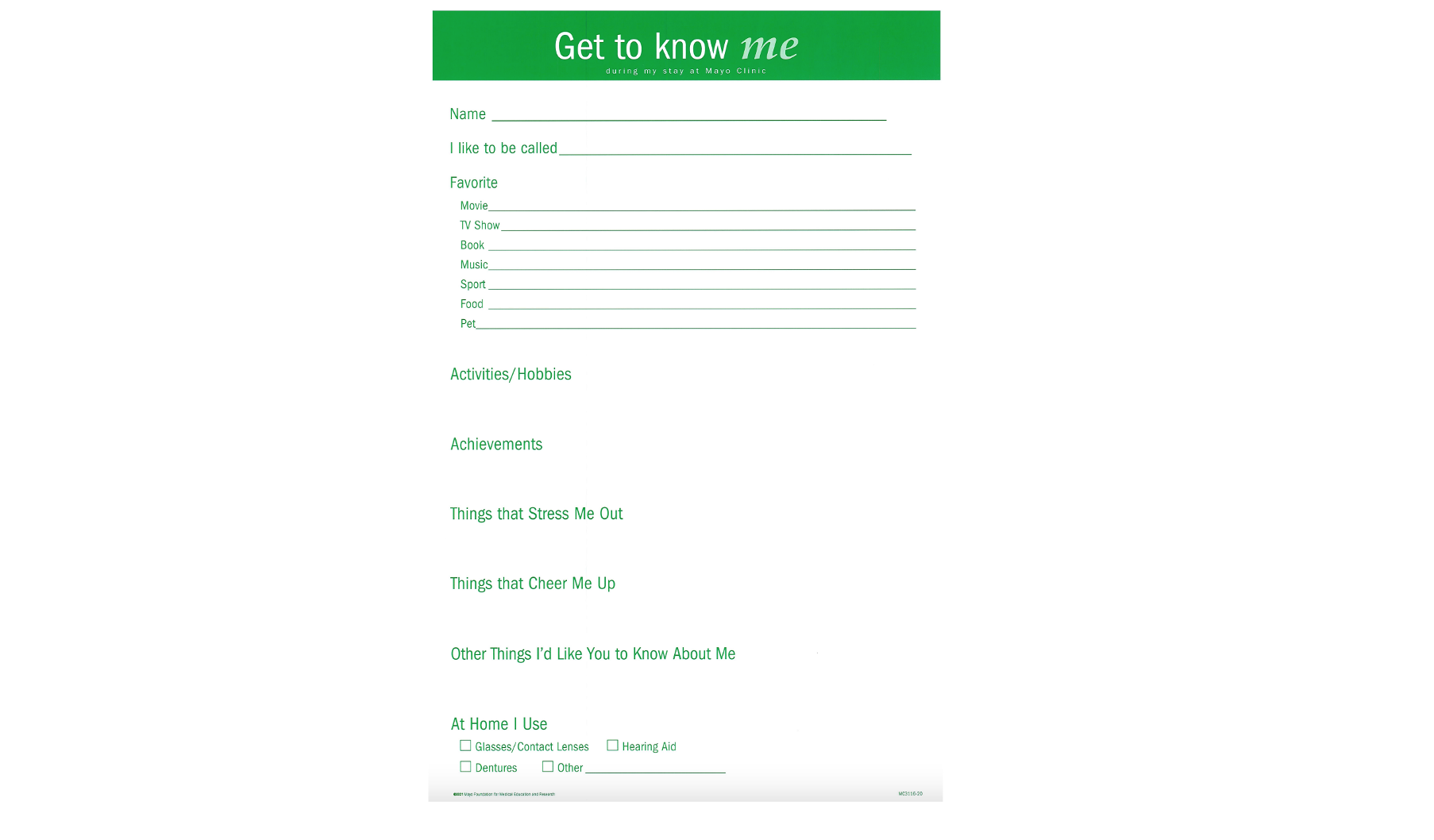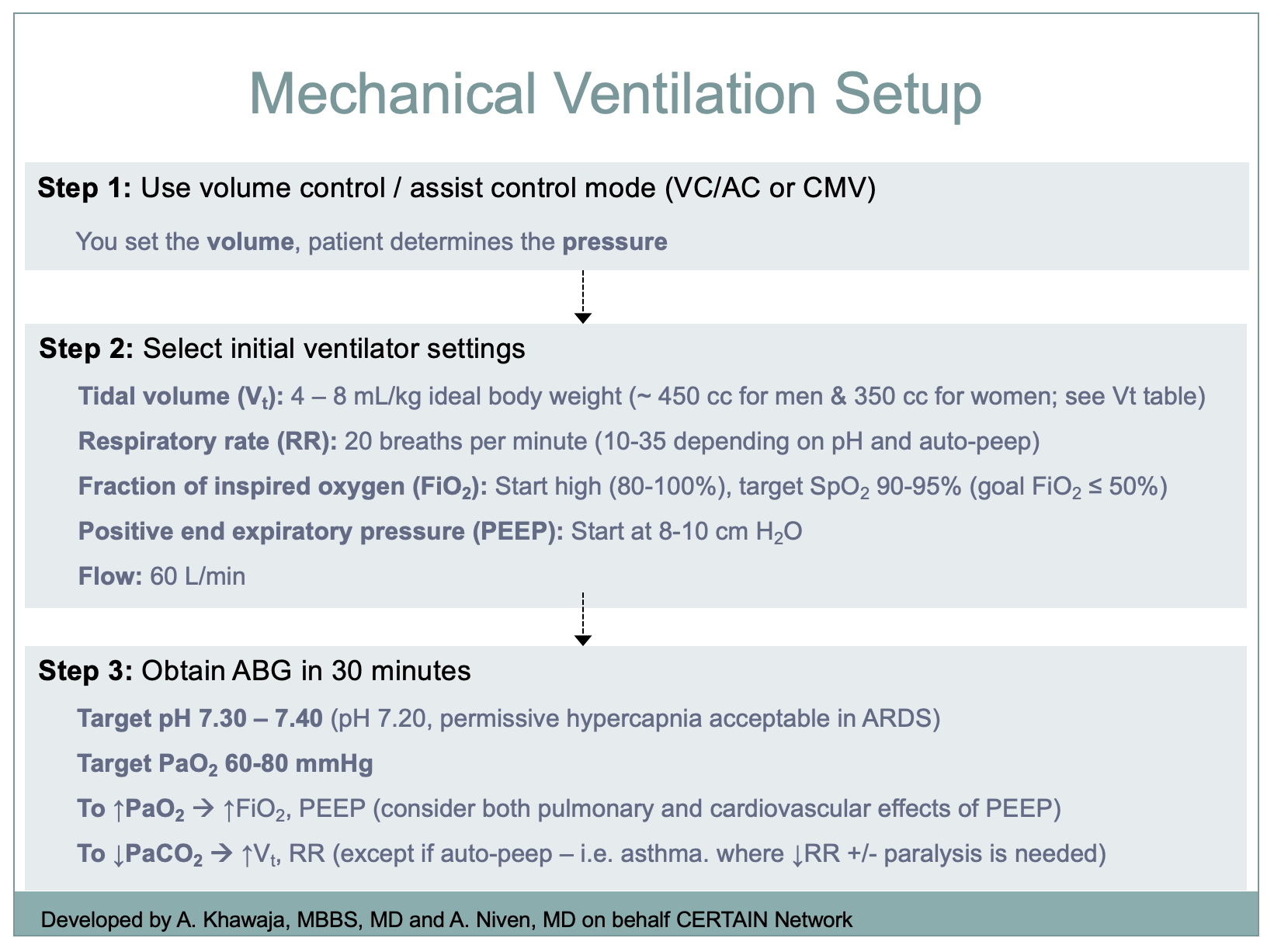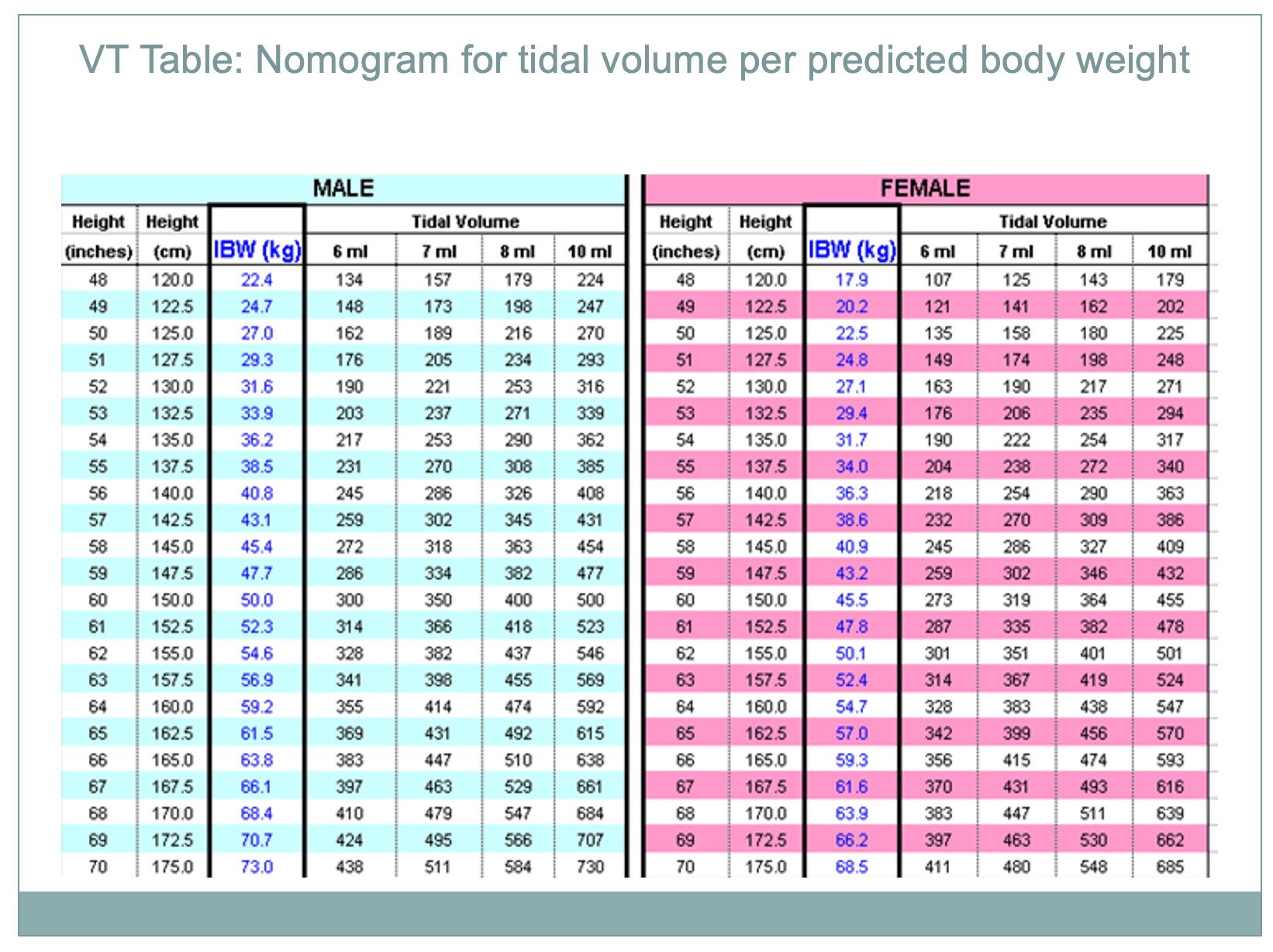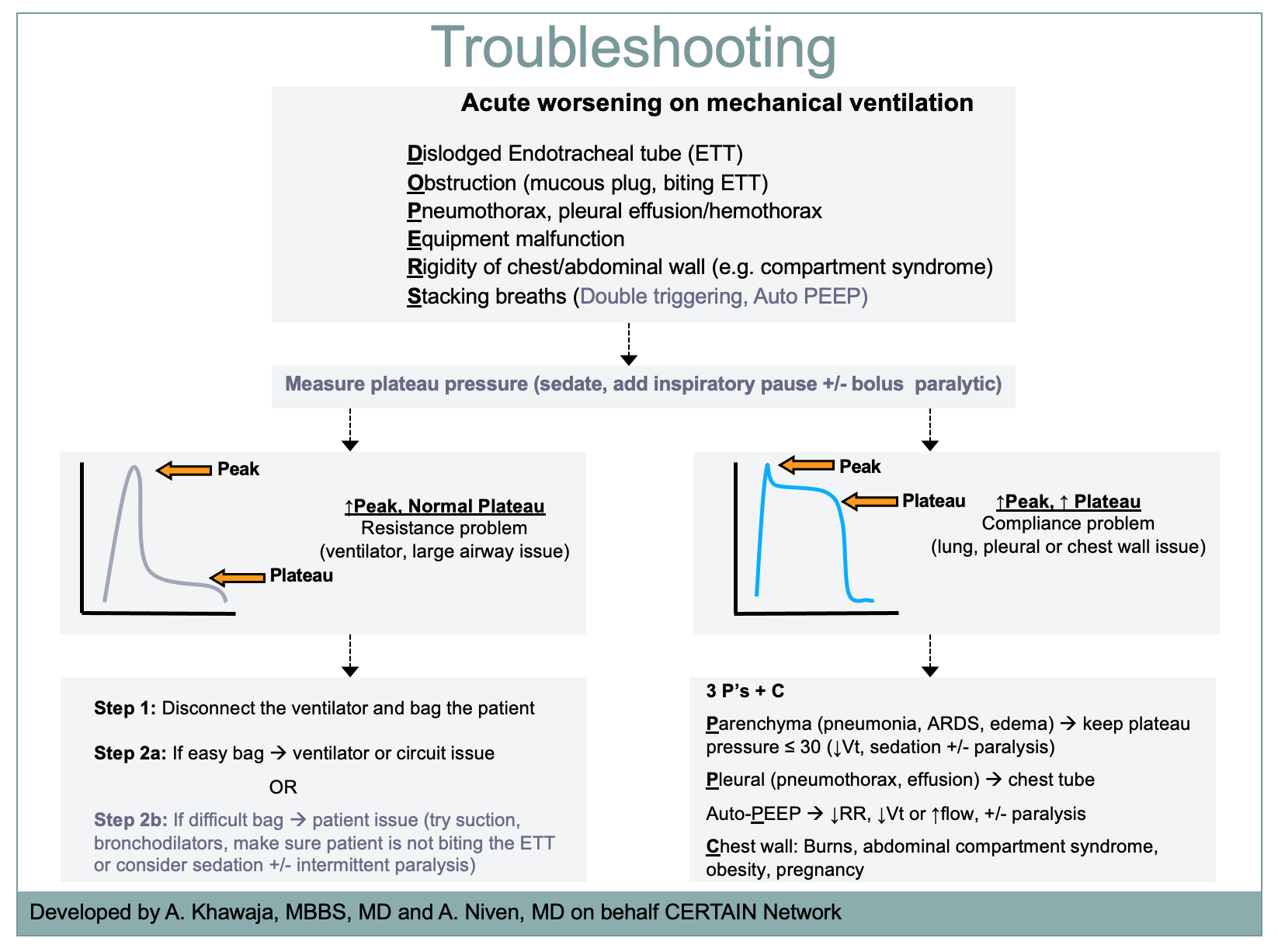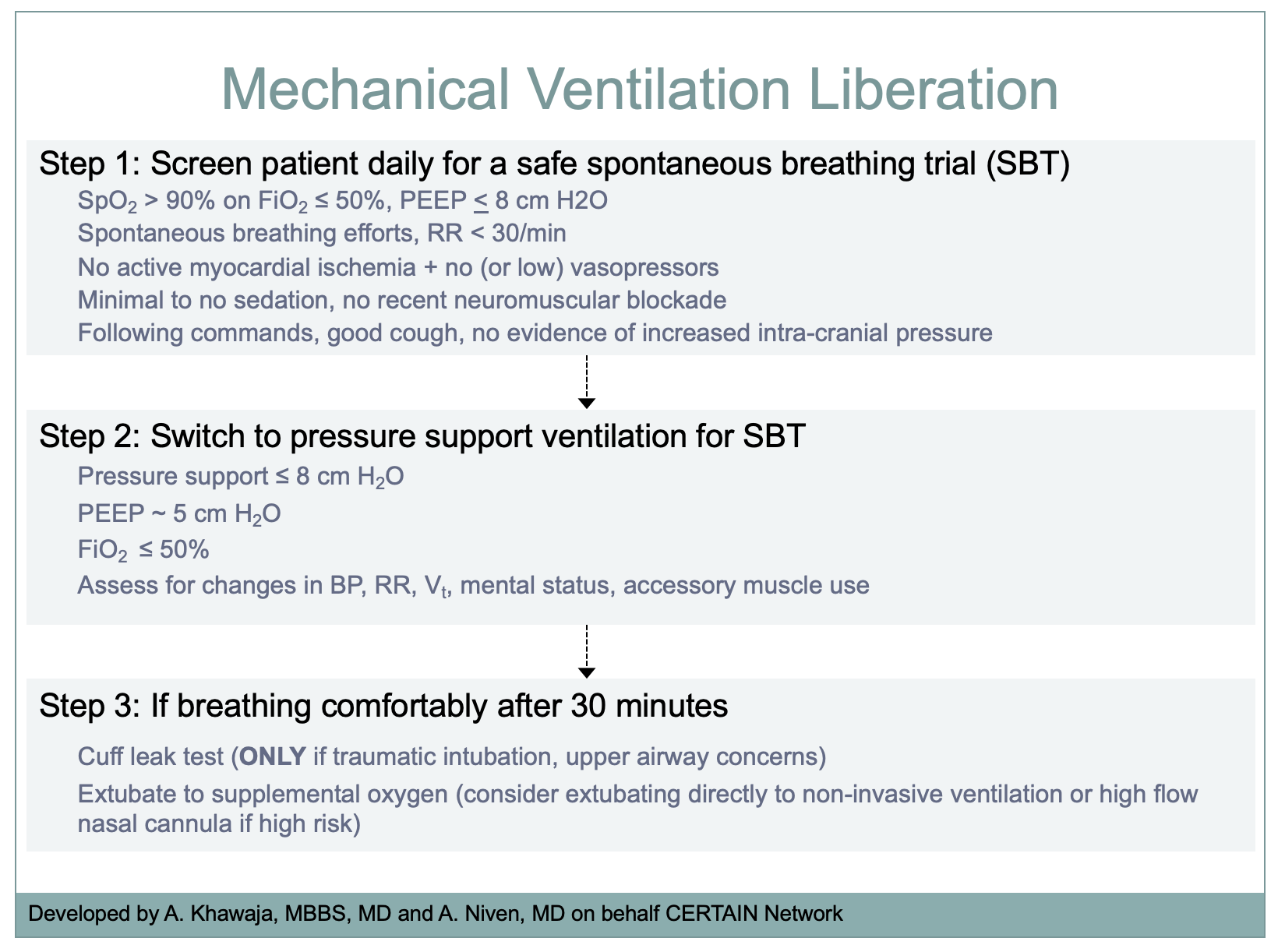CERTAIN Trauma
In response to the increasing numbers of critically injured victims in armed conflicts around the world, we have launched open-access resources and tools for evidence-based triage, resuscitation, care, and rehabilitation of patients with war-related injuries, regardless of their location.
The Structured Team-based OPtimal Critical Care for Trauma victims (STOP-Trauma) learning collaborative was initially developed in support of critical care clinicians providing care during the war, CERTAIN-Trauma provides comprehensive access to checklists, algorithms, and state-of-the-art webinars encompassing all the aspects of critical care and disaster medicine.
CERTAIN Primary Survey
Available for download: English
CERTAIN Trauma Primary Survey
CERTAIN ICU Rounding Checklist
On admission, deterioration, and every day, check the plan of care by organ systems to prevent omissions and guarantee best practices.
Available for download: English
Humanizing the ICU
"Get to Know Me" Board - Gajic O, Anderson BD. Crit Care Explor. 2019 Aug 1;1(8):e0030
Available for download: : English
Mechanical Ventilation: setup, troubleshooting, liberation
Available for download: English
Psychological support
The International Trauma Consortium: mental health resources for patients and staff
Resources
International Committee of the Red Cross: War Surgery - Working with Limited Resources in Armed Conflict and Other Situations of Violence, Vol 1, 2nd Ed. (2019)
Society of Critical Care Medicine - Ukraine Response: multiple resources available for download
Borden Institute (U.S. Army Medical Center for Excellence):
Joint Trauma System (Department of Defense Center of Excellence for Trauma, Defense Health Agency):
Clinical Practice Guidelines (CPGs): multiple clinical practice guidelines used by military and civilian healthcare providers
Deployed Medicine - Combat Casualty Care Collection: latest recommendations and clinical practice guidelines
Tactical Combat Casualty Care Guidelines (TCCC) - English: core skills for initial evaluation and resuscitation of a combat casualty
Tactical Combat Casualty Care Guidelines - Train the Trainer Course Videos - English
Damage Control Resuscitation - English: recommendations for initial resuscitation and management of uncontrolled hemorrhage
Surgical Combat Casualty Care - English: latest recommendations and proven practices for initial hospital management and common complications seen in trauma victims
Stop the Bleed Campaign (American College of Surgeons): how to stop hemorrhage (bleeding control) for civilians and healthcare workers
General ICU resources:
Critical Care Reviews: new literature and guidelines, organized by systems
Life in the Fast Line: blog with critical care educational material
ICU One Pager: general one page, quick information for ICU care
Partners
STOP-Trauma ICU Learning Collaborative, Society of Critical Care Medicine (SCCM)
Mayo Clinic, Rochester, MN, USA
Humanizing the ICU
Gajic O, et al. Outcomes of critical illness: what is meaningful? Curr Opin Crit Care. 2018;24(5):394-400
Dunstan GR. Hard questions in intensive care. Anaesthesia. 1985;40(5):479-482
Disclaimer: The information provided in this page CANNOT substitute clinical judgment. Analogous to using any other medical textbooks, the bedside clinician ought to consider the checklist suggestions in the context of all other pertinent information, available resources, and patient preference.
© 1998-2025 Mayo Foundation for Medical Education and Research (MFMER). All rights reserved.


